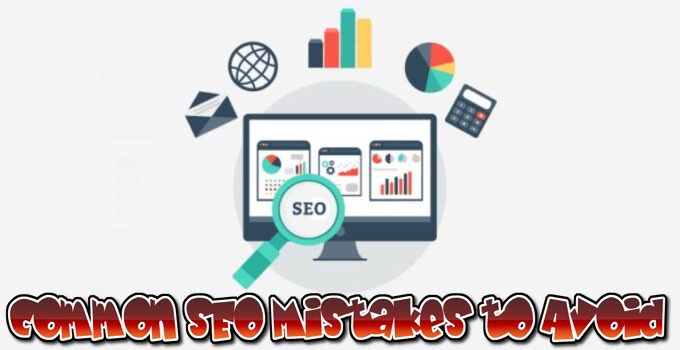10 Common SEO Mistakes to Avoid at All Costs
This blog post is an introductory guide to SEO for beginners. It covers the basics of what SEO is, why it's important, and how to get started with implementing an effective SEO strategy for your website. Readers will learn about keyword research, on-page optimization, link building, and other key factors that influence website ranking. This post is a must-read for anyone new to SEO and looking to improve their website's visibility and ranking on search engines.
SOCIAL MEDIA MARKETINGDIGITAL MARKETINGEMPLOYMENTENTREPRENEURSHIPINVESTINGFREELANCINGPASSIVE INCOME
Earnology
4/20/20234 min read


Search Engine Optimization, commonly known as SEO, is the process of optimizing your website and content to increase its visibility and ranking on search engine results pages (SERPs). This process involves optimizing various factors such as website structure, content, meta tags, backlinks, and more. By improving these factors, you can boost your website's organic traffic and, ultimately, your income.
In this blog post, we'll dive deeper into what SEO is, why it's important, and how you can use it to boost your income.
Why is SEO important?
SEO is crucial for any business that wants to increase its online visibility and drive more traffic to its website. When you optimize your website for search engines, you can improve your website's ranking in SERPs, making it more likely that people will find your website when searching for relevant keywords.
By ranking higher in SERPs, you can attract more organic traffic to your website, which can lead to increased brand awareness, more leads, and ultimately, more sales. SEO is a cost-effective way to drive traffic to your website, and it's an essential part of any digital marketing strategy.
Conduct thorough keyword research to identify the most relevant and valuable keywords for your industry and target audience. Keyword research is the foundation of any successful SEO strategy. It involves identifying the keywords and phrases that your target audience is searching for and optimizing your content to rank for those keywords. You can use keyword research tools such as Google Keyword Planner, Ahrefs, or SEMrush to find keywords relevant to your industry. Once you have identified the keywords you want to target, you can optimize your website's content to rank for those keywords. Ensure you use your keywords strategically in your content, headings, meta descriptions, and URLs.
Optimize your website's structure by creating a clear hierarchy of pages and content, and ensuring that your website is mobile-friendly and loads quickly. Your website's structure is critical for SEO. A well-organized website with a clear hierarchy and easy navigation is essential for both search engines and users. Ensure that your website's structure is organized, with a clear hierarchy of pages and content. Create a sitemap to help search engines understand your website's structure and make it easier for users to navigate your website. Also, ensure your website is mobile-friendly and loads quickly, as website speed is a crucial ranking factor.
Create high-quality, informative, and engaging content that provides value to your readers and is optimized for your target keywords. Creating high-quality, informative, and engaging content is essential for SEO. Ensure that your content provides value to your readers and is optimized for your target keywords. Additionally, use relevant images and videos to make your content more engaging and visually appealing. Ensure you optimize your multimedia for search engines by using alt tags, file names, and captions.
Use multimedia such as images and videos to make your content more engaging and visually appealing, and optimize them for search engines. Using multimedia such as images and videos can make your content more engaging and visually appealing. Ensure you optimize your multimedia for search engines by using alt tags, file names, and captions.
Focus on building high-quality backlinks from authoritative websites relevant to your industry, and avoid buying links or using shady link-building tactics. Backlinks are links from other websites that point to your website. They are a crucial ranking factor for SEO, and they can help boost your website's authority and visibility. Ensure you focus on building high-quality backlinks from authoritative websites relevant to your industry. Avoid buying links or using shady link-building tactics, as they can hurt your website's ranking and reputation.
Monitor your website's performance using tools such as Google Analytics or Ahrefs, and identify areas that need improvement. Regularly monitoring your website's performance is crucial for SEO. You can use tools such as Google Analytics or Ahrefs to track your website's traffic, ranking, and backlinks. Monitoring your website's performance can help you identify areas that need improvement and adjust your strategy accordingly. Additionally, it can help you measure the effectiveness of your SEO strategy and ensure you're achieving your goals.
Ensure that your website's meta tags, including meta descriptions and title tags, are optimized for search engines and accurately reflect your content. Meta tags, including meta descriptions and title tags, are critical for SEO. They provide information about your website's content to search engines and users. Ensure that your meta tags are optimized for search engines and accurately reflect your content.
Use internal linking to help search engines understand the structure of your website and to guide users to related content. Internal linking is the process of linking to other pages on your website. It helps search engines understand the structure of your website and can guide users to related content. Ensure that your internal links are relevant and useful
Use social media to promote your content and engage with your audience, and ensure that your social media profiles are optimized for search engines. Social media can be a powerful tool for SEO. By promoting your content on social media platforms and engaging with your audience, you can drive more traffic to your website and improve your website's visibility on search engines. Additionally, ensure that your social media profiles are optimized for search engines by including relevant keywords and links to your website.
Regularly update and optimize your website's content to ensure that it remains relevant and valuable to your target audience and search engines. Regularly updating and optimizing your website's content is crucial for SEO. It helps ensure that your content remains relevant and valuable to your target audience and search engines. Additionally, updating and optimizing your content can help improve your website's ranking and visibility on search engines. Ensure that you regularly review and update your content to ensure that it remains relevant and valuable to your target audience.
SEO is a crucial part of any digital marketing strategy, and it's an effective way to boost your website's visibility and drive more traffic to your website. By implementing these SEO strategies, you can improve your website's ranking, attract more organic traffic, and ultimately, increase your income. Remember to be patient, as SEO takes time to produce results. With the right strategy and consistent effort, you can achieve long
